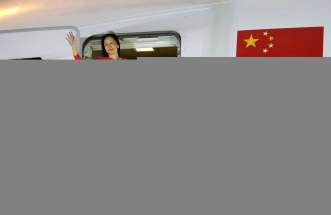Lessons learned from plight of two Michaels
Read this article for free:
or
Already have an account? Log in here »
To continue reading, please subscribe:
Monthly Digital Subscription
$19 $0 for the first 4 weeks*
- Enjoy unlimited reading on winnipegfreepress.com
- Read the E-Edition, our digital replica newspaper
- Access News Break, our award-winning app
- Play interactive puzzles
*No charge for 4 weeks then billed as $19 every four weeks (new subscribers and qualified returning subscribers only). Cancel anytime.
Read unlimited articles for free today:
or
Already have an account? Log in here »
Hey there, time traveller!
This article was published 26/09/2021 (1089 days ago), so information in it may no longer be current.
Canadians should remember the case of Meng Wanzhou and the two Michaels next time we receive an extradition demand from the United States government. We should give such a request some thought and consider how it will end.
In this case, Canada took the U.S. demand seriously, at enormous cost to Michael Kovrig and Michael Spavor, who spent 1,020 days in Chinese prisons until their return home on Saturday. Canada’s trade and political relations with China also suffered great damage which is still beyond counting.
The United States, on the other hand, in the end treated the matter lightly. It dropped the extradition demand and agreed to drop the charges, more or less admitting that its case did not have enough merit to be worth pursuing in court. Canada and the two Michaels were left twisting in the wind for nearly three years until the U.S. authorities essentially said “OK, never mind.”
The negotiated settlement that included dropping of charges and release of Ms. Meng and the hostages was a blessing to Canada and especially to the two Michaels. Canadians can rejoice that this solution was eventually found. It nevertheless raises awkward questions about how Canada found itself in this situation in the first place. Canada might legitimately have told the U.S in December 2018, “This is not our fight. You make your own arrests.”Canada and the two Michaels were left twisting in the wind for nearly three years until the U.S. authorities essentially said “OK, never mind.”
Canada should step up its defences against hostage-taking by China. Canadian firms doing business in China should be regularly reminded of the dangers they face from a cruel and repressive regime that arbitrarily imprisons people as a way of enforcing its will. China continues to offer absurd pretexts for its conduct and gives no sign of submitting to international norms. Canada and its companies should organize means of doing business in China beyond the reach of Chinese security forces.
Canadian intelligence gathering in China should also be intensified. We should not count on second-hand intelligence from U.S. sources because the U.S. has its own aims which may not coincide with Canada’s. This country needs its own sources of data and its own interpretive wisdom on what China is up to.
China’s rulers have claimed a great victory in winning the release of Meng Wanzhou. If they really believe it was a victory, they will presumably continue taking hostages as a way of coercing other countries. For a government that cares nothing about its world reputation, hostage-taking is a cheap and cowardly way of waging low-intensity war.
China’s recent conduct, including imprisonment of the two Michaels, has, however, exacted a reputational price from Beijing. It has crystallized coalitions aimed at resisting China. Sixty-six countries and the European Union have endorsed the Canadian-sponsored declaration against arbitrary detention. The newly-formed Quad group of the U.S., India, Japan and Australia has resolved to pursue a free and open Indo-Pacific region.
The U.S. and the United Kingdom have agreed to help Australia build nuclear-powered submarines. G7 leaders at the June summit in Cornwall resolved to find out how the COVID-19 pandemic actually started in Wuhan, and also to compete against China’s Belt and Road program of Third-World infrastructure projects.China continues to offer absurd pretexts for its conduct and gives no sign of submitting to international norms.
If China’s rulers wonder why this multi-faceted grand coalition to resist China is taking shape, they should review their own cruelty and their defiance of the usual practices of peaceful relations among countries. Great nations win the admiration of the world. They do not look for ways to coerce and terrorize their neighbours. China needs to change course.








